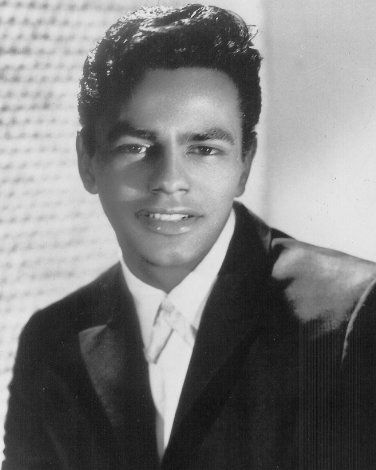The Unforgettable Voices: Famous Black Singers From the 50s
The 1950s. A decade crackling with change, a burgeoning sense of freedom, and the electrifying rhythm of rock and roll. At the heart of this cultural revolution were Black singers who, despite facing deep-seated prejudice and segregation, used their voices to move hearts, defy expectations, and forever alter the landscape of American music.
These weren't just singers; they were pioneers. They challenged the status quo, not just with their music but their very presence on stage, daring to cross racial boundaries in a society deeply divided. Their melodies became anthems, their lyrics resonating with both the struggles and aspirations of a generation yearning for something more.
Imagine the sultry vibrato of Dinah Washington, a force of nature who effortlessly navigated genres, from jazz to blues to pop, becoming one of the most popular singers of her time. Picture Chuck Berry, the guitar-wielding showman who fused rhythm and blues with country, birthing rock and roll and influencing generations of musicians to come. And who could forget the velvety smooth vocals of Sam Cooke, a gospel prodigy who crossed over to pop stardom, his music becoming a soundtrack to the Civil Rights Movement?
These names, along with legends like Little Richard, Ray Charles, and Etta James, represent just a fraction of the Black talent that dominated the 1950s music scene. They brought rhythm and blues, jazz, and gospel to the forefront, their music seeping into every corner of American life, from jukeboxes in diners to living rooms across the nation.
The influence of these iconic artists extends far beyond the music itself. They became symbols of hope, resilience, and the fight for equality, paving the way for future generations of Black artists and contributing to the ongoing dialogue on racial equality in America. They dared to dream big, and in doing so, they changed the face of music forever.
Their legacy is multifaceted. These artists didn't just break musical barriers; they shattered social ones. They brought people together, their music transcending racial divides and fostering a sense of shared experience. Their influence can be heard in every genre from soul to rock to pop, a testament to their enduring impact on the sonic landscape we know today.
To truly understand the magnitude of their contributions, one must delve into their stories, explore the social climate of their time, and appreciate the sheer power and artistry they possessed. Their music serves as a reminder of the transformative power of art, the enduring strength of the human spirit, and the importance of celebrating diversity in all its forms. The 1950s may have been a time of immense social change, but the music of these incredible Black singers continues to resonate today, their voices as relevant and inspiring as ever.
Advantages and Disadvantages of Studying Famous Black Singers from the 50s
| Advantages | Disadvantages |
|---|---|
| Understanding musical evolution and cultural impact | Potential for biased or incomplete historical information |
| Appreciating the artistry and resilience of Black musicians during a tumultuous era | Difficulty in accessing primary sources and firsthand accounts |
| Connecting with a pivotal moment in American history and the Civil Rights Movement | Oversimplification of complex social and racial dynamics of the time |
Their stories are a testament to the power of music to inspire, uplift, and drive change. As we continue to grapple with issues of race and equality today, their music serves as a powerful reminder of the importance of diversity, perseverance, and the pursuit of a more just and equitable world.
The enduring power of if you remember me a song of love loss and legacy
The allure of acrylic nails materials techniques and trends
Diablo 4 when the seasons curtain falls






:max_bytes(150000):strip_icc()/elvis-presley-portrait-with-an-acoustic-guitar-74290659-59c151cc9abed500118822e8.jpg)




:max_bytes(150000):strip_icc()/GettyImages-85351643-56bcf8953df78c0b137d32da.jpg)


